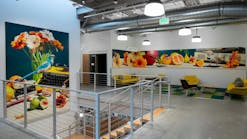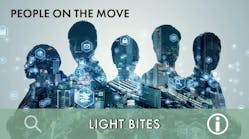SIL Europe 2012 Workshops Focus on Biological Aspects of Light, European Standards for LED Lighting
It has been the tradition at Strategies in Light conferences to offer pre-conference workshops on special topics to attendees who may wish to focus on such topics in more detail than is possible in regular conference presentations. In this regard, Strategies in Light Europe 2012 is no exception. Two workshops of current interest to the European lighting community will be offered on Tuesday, September 18.
Workshop #1: Lighting Beyond Vision – Biological Aspects of Lighting
This workshop will address the current state of understanding of the biological effects of lighting on human behavior. Organized by Strategies Unlimited and PennWell in collaboration with the European Lamp Companies Federation (ELC), the workshop will host presentations from leading researchers and lighting companies, exploring the impact of lighting on circadian rhythm, metabolism, alertness, and many other aspects of human biology.
The effects of artificial lighting on human behavior and well-being have been discussed for a long time. There are many research facilities worldwide that conduct studies on how light affects our lives. The introduction of solid-state lighting technology to general illumination enables the industry to have better control of color change, dimmability and flexibility of design. The development of smart lighting control systems not only improves the functionality of lighting systems, but provides opportunities to design unique systems that go beyond lighting needs. Therefore, the understanding of biological effects of light on human well-being is becoming more important and appealing to the lighting industry.
The workshop will begin with a presentation from Professor of Medical Psychology at the Ludwig-Maximilians University Munich, Till Roenneberg, the author of “Internal Time: Chronotypes, Social Jet Lag, and Why You're So Tired". According to Professor Roenneberg, the importance of light in our daily lives is largely underestimated. The internal biological clock in all humans is “synchronized predominantly by light and darkness to its temporal environment”. Professor Roennenberg notes that “indoor light intensities are much dimmer than anything we encounter outside during the day. While we are lucky to receive 400 Lux in a well-lit room (even if it has large windows), we are exposed to 10,000 Lux on a rainy day outside and to more than 100,000 Lux on a cloudless noon.” The constant underexposure to natural lighting cycles could be compensated with “dynamic lighting systems that provide cooler (bluer) light when the sun is up and warmer (redder) light during the natural nights”. Professor Roenneberg will discuss the importance of light and its effects on human behavior in his presentation entitled “The Importance of Light for Health in a Changing Society”.
In the remainder of the workshop, the leaders of European lighting industry will outline the results of their work and research related to biological aspects of light. Andreas Wojtysiak, Innovation Manager, Light and Health from Osram AG (Germany), will provide his overview of biological effectsof lighitng in a presentation entitled “Biological Effect of Light — The Role of Light Sources, Luminaires and Light Management Systems”. George Kok of Philips Lighting (Netherlands) will explore the influence of light on well-being in schools and in offices with a presentation entitled “School and Office — How Can Lighting Contribute to Well-being?”.Carina Buchholz, Lighting Application Manager for Zumtobel Lighting (Austria) will discuss the effects of lighting at workplaces. Lars Trettin, Product Manager in Healthcare at Trilux (Germany), will explore the effects of lighting on humans in healthcare, including patients and staff. The workshop will conclude with a presentation from Annett Schenkenbach of Waldmann/DerungsGermany) that will discuss practical lighting applications in care homes for the elderly.
Workshop #2: European Standards for the LED Industry
The current transformation of the lighting industry is bringing about the need for the standardization of LED lighting. This subject is of major importance for regulators, international organizations, and lighting companies. This workshop will provide a comprehensive overview of the most current standards and directives related to LED lighting in Europe.
The workshop will start with a presentation from Andrew Davies, Sales Development Director of LED Modules Europe and MEA for GE, (UK) that will provide an overview of Zhaga standards and the most recent developments in the Zhaga books related to LED modules. Walter Parmiani, European Operations Manager of UL Verification Services (Italy) will provide an overview of performance testing standards. Thomas Marinelli, Director WEEE Management, Department Sustainability and Government Affairs for Philips Lighting, (Netherlands) will provide an overview of WEEE standards related to lighting equipment and will cover the most recent standards related to LED lighting. Chiara Briatore, Policy Advisor, European Lamp Companies Federation (Belgium) will provide an overview of Ecolabeling criteria for lighting sources. The workshop will conclude with a presentation from Nils Borg of the International Energy Agency(IEA) 4E SSL Annex that will cover the most recent developments in standardization of LED lighting on behalf of IEA.
More information on workshops offered at the ‘Strategies in Light Europe 2012’ can be found on the conference website: http://www.sileurope.com/conference/workshop1.html

Katya Evstratyeva
Education: MBA, Monterey Institute of International Studies, Monterey, California, USA.
Katya Evstratyeva is an Analyst for Strategies Unlimited, monitoring the newest trends and markets for the LED lighting industry in the United States, Europe, and Asia.
Prior to joining Strategies Unlimited Katya held positions in business development and international operations focusing on market assessment, marketing strategy, financial projections, pricing, business planning and operations.
Katya received her MBA from the Monterey Institute of International Studies. She is fluent in English, Russian, and French.




